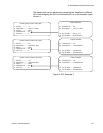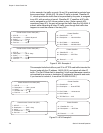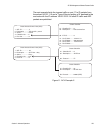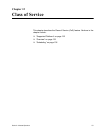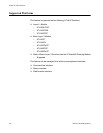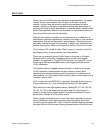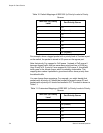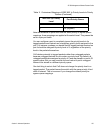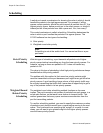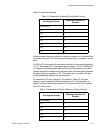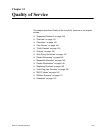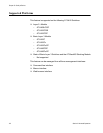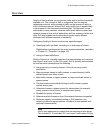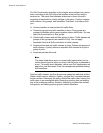
AT-S63 Management Software Features Guide
Section II: Advanced Operations 135
Note that because all ports must use the same priority-to-egress queue
mappings, these mappings are applied at the switch level. They cannot be
set on a per-port basis.
You can configure a port to completely ignore the priority levels in its
tagged packets and instead use a temporary priority level assigned to the
port. For instance, perhaps you decide that all tagged packets received on
port 4 should be assigned a priority level of 5, regardless of the priority
level in the packets themselves.
CoS relates primarily to tagged packets rather than untagged packets
because untagged packets do not contain a priority level. By default, all
untagged packets are assigned a priority of 0 and are placed in a port’s Q1
egress queue. But you can override this and instruct a port’s untagged
frames to be stored in a different priority queue.
One last thing to note is that CoS does not change the priority level in a
tagged packet. The packet leaves the switch with the same priority it had
when it entered. This is true even if you change the default priority-to-
egress queue mappings.
6Q6
7 Q7 (highest)
Table 11. Customized Mappings of IEEE 802.1p Priority Levels to Priority
Queues (Continued)
IEEE 802.1p Priority
Level
Port Priority Queue



